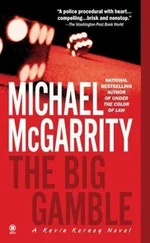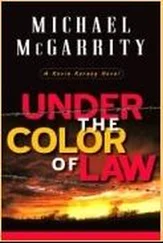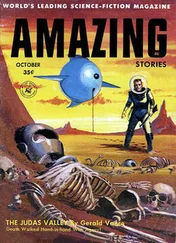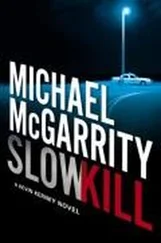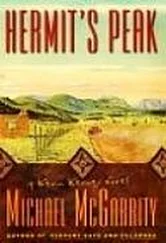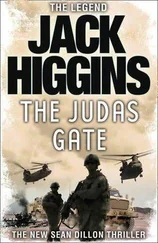Michael McGarrity - The Judas judge
Здесь есть возможность читать онлайн «Michael McGarrity - The Judas judge» весь текст электронной книги совершенно бесплатно (целиком полную версию без сокращений). В некоторых случаях можно слушать аудио, скачать через торрент в формате fb2 и присутствует краткое содержание. Жанр: Триллер, на английском языке. Описание произведения, (предисловие) а так же отзывы посетителей доступны на портале библиотеки ЛибКат.
- Название:The Judas judge
- Автор:
- Жанр:
- Год:неизвестен
- ISBN:нет данных
- Рейтинг книги:5 / 5. Голосов: 1
-
Избранное:Добавить в избранное
- Отзывы:
-
Ваша оценка:
- 100
- 1
- 2
- 3
- 4
- 5
The Judas judge: краткое содержание, описание и аннотация
Предлагаем к чтению аннотацию, описание, краткое содержание или предисловие (зависит от того, что написал сам автор книги «The Judas judge»). Если вы не нашли необходимую информацию о книге — напишите в комментариях, мы постараемся отыскать её.
The Judas judge — читать онлайн бесплатно полную книгу (весь текст) целиком
Ниже представлен текст книги, разбитый по страницам. Система сохранения места последней прочитанной страницы, позволяет с удобством читать онлайн бесплатно книгу «The Judas judge», без необходимости каждый раз заново искать на чём Вы остановились. Поставьте закладку, и сможете в любой момент перейти на страницу, на которой закончили чтение.
Интервал:
Закладка:
At the bottom of the curve, Tim located the culvert and the county line sign Waxman has used as his reference points. As traffic allowed, he ran measurements to verify Waxman's distances and found the spot Waxman had identified as the point of impact. He sprayed the location with orange paint, and photographed it from various angles.
Back at his unit, he punched in numbers on a pocket calculator, entered the formulas, and checked Waxman's math. Waxman had been right on, if he'd found the true point of impact.
Tim looked back up the hill. What was the first point where the driver could spot a hazard in the road? He popped the trunk of his unit, grabbed his metal file case, carried it up to the impact point, and placed it on the shoulder. At the bottom of the hill, he could see the case clearly, and it was less than half the size of one of the three cardboard boxes.
Figuring driver distraction, Tim cut the distance in half, and found himself thinking there was still time to slow and veer to avoid hitting the boxes or Langsford.
He returned his file case to his unit just as his call sign came over the radio. The sheriff's office had found the negatives and still had the pieces of the bicycle in evidence.
"Good deal," Tim said to the dispatcher. "I'm on my way."
In the sheriff's department evidence room, Tim sifted through the box containing the mangled parts of Arthur Langsford's mountain bike. The struts, front wheel, and handlebars were crumpled, and the control levers connected to the brake and gear shift cables dangled from the handlebars. Deep scratches in the metal showed that the bike had skidded across the pavement for a considerable distance before coming to a stop.
Tim opened the manila envelope attached to the lid and read through Waxman's forensic analysis request and the lab's results. Waxman had asked only for the identification of any foreign paint, and none had been found.
The back wheel, tire, and the support piece that anchored the rear brakes to the frame were intact. Tim took a closer look. The brake pads were frozen in a closed position against the sidewall of the tire, which was pretty good proof that Langsford saw the car coming and reacted.
That, coupled with the fact that most of the road damage to the handlebars was concentrated on one side, made it very likely that Langsford had both braked and turned to avoid the collision.
Coming down that hill at thirty-five or forty miles a hour, Langsford must have put skid marks on the pavement. Waxman had flat-out missed them.
Tim's interest in the negatives jumped several notches. He dumped the bike parts in the box, resealed the lid, signed the evidence slip, and got back to district headquarters in a hurry. At the computer terminal, he scanned in the negatives and punched them up on the screen one at a time. He played with background colors until he had the right mix that highlighted the vehicle skid marks.
He looked, and looked again. The tread marks were thick and conspicuous on the outer side of the left front tire, and on the inner side of the right front tire, but otherwise barely discernible. What Waxman had taken to be skid marks was clearly a hard turn of the front wheels. But at what speed?
He punched up another image and the slender lines of the bicycle skid marks jumped out at him. He put the two photographs side-by-side on the screen, leaned back in his chair, and studied them intently before thumbing through the autopsy report. Then he factored in the new information and reworked Waxman's original calculations.
The new figures didn't work. He checked his wristwatch, printed hard copies of the negatives, and headed for the door. He needed to take new measurements at the site and visit with Marcos Narvaiz, the first volunteer firefighter on the scene, to see if he could fill in any of the remaining blanks.
Working the list of locals for preferred seating at the funeral services didn't yield anything of value. Death had cleansed Vernon Langsford of all human frailties, and Kerney found himself listening to cliched eulogies that gave no true sense of the man, the most notable ones coming from a sitting district court judge, a former district attorney, and a retired city police chief.
He called around to motels and bed and breakfast inns and located six of the eight out-of-town guests who were on Linda Langsford's list. He got to the Bitter Lake Bed and Breakfast just as Leonora Wister was leaving her Santa Fe-style cottage accommodations.
"Vernon was my first cousin," Leonora said, as she stood next to a late-model white Cadillac with Texas plates. "We grew up together."
"Were you close as children?" Kerney asked, trying not to stare at Leonora's blue gray curly hair. She clutched a large purse against her stomach in an attempt to hide her thick waist from view.
"Yes, until high school, when my family moved to San Antonio. After that, I would see him during occasional visits to Roswell."
"What kind of kid was he?"
"Wild," Leonora replied.
"In what way?"
"He became interested in girls at a very early age."
"Can you give me specifics?"
"Not really. Maybe Danny Hobeck can. He was Vernon's best friend all through school."
Kerney scanned his list. Hobeck was one of the out-of-town guests he'd been unable to locate. "Do you know where he's staying?"
"With his sister," Leonora replied.
Kerney asked for and got a name and address.
"How can prying into Vernon's childhood possibly help you catch his killer?" Leonora asked.
"I'm not sure it will," Kerney said.
Danny Hobeck was out renewing old acquaintance ships but his sister, Margie, was home. A thin, nervous woman in her late sixties with rounded shoulders and apprehensive eyes, she reluctantly let Kerney in.
He sat with her in a living room entirely given over to her three cats. There were scratching poles in each corner for the tabbies to use. Rubber mice, tennis balls, and pet toys were scattered across the oak floor. Next to the pet door that offered access to and from the front porch, three food bowls were lined up, each inscribed with a name-Frisky, Mellow, and Violet. Framed photographs of the cats were prominently displayed on top of a television set.
The tabbies padded back and forth across the room, tails upright, giving Kerney a wide berth.
"I understand Vernon and Danny were best friends," Kerney said.
"I wouldn't call it a friendship."
"What would you call it?"
"Vernon led Danny around by the nose," she said after some hesitation.
"You don't sound well-disposed toward Vernon."
"He wasn't a very nice boy."
"Care to tell me why you feel that way?" Kerney asked.
Margie leaned forward in her easy chair and snapped her fingers. One of the cats turned and jumped into her lap. She stroked it and said nothing.
"How much younger are you than Danny?" Kerney asked.
"Five years."
"Does he have a family?"
"Two grown children. His wife died last year."
"And your family?"
Margie recoiled slightly and wet her lips. "I never married."
"Will you be attending the funeral services?"
Margie scratched the cat's chin while the ignored felines converged at her feet. "No."
"Care to tell me why?"
She patted the arm of the chair and the animals jumped into her lap. "I don't want to go." She ran a hand over the yellow cat's back, and it arched and purred.
"Would Danny be able to tell me why you don't like Vernon?"
"He would never do that." Her tone was biting.
"When will he be back?"
"I don't know."
"I'll call for him this evening."
"He won't talk to you."
Kerney let himself out wondering why so many people in Langsford's life, past and present, needed to keep secrets.
"I remember that call," Marcos Narvaiz said. He poured Tim Dwyer a cup of coffee at his kitchen table, returned the pot to the stove, and ran a hand over his shaggy, curly gray hair.
Читать дальшеИнтервал:
Закладка:
Похожие книги на «The Judas judge»
Представляем Вашему вниманию похожие книги на «The Judas judge» списком для выбора. Мы отобрали схожую по названию и смыслу литературу в надежде предоставить читателям больше вариантов отыскать новые, интересные, ещё непрочитанные произведения.
Обсуждение, отзывы о книге «The Judas judge» и просто собственные мнения читателей. Оставьте ваши комментарии, напишите, что Вы думаете о произведении, его смысле или главных героях. Укажите что конкретно понравилось, а что нет, и почему Вы так считаете.

